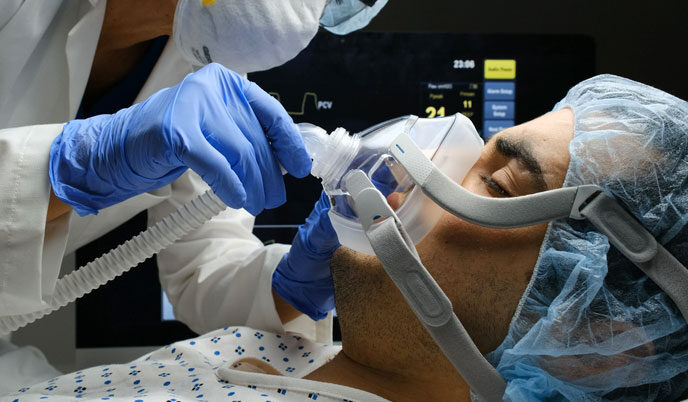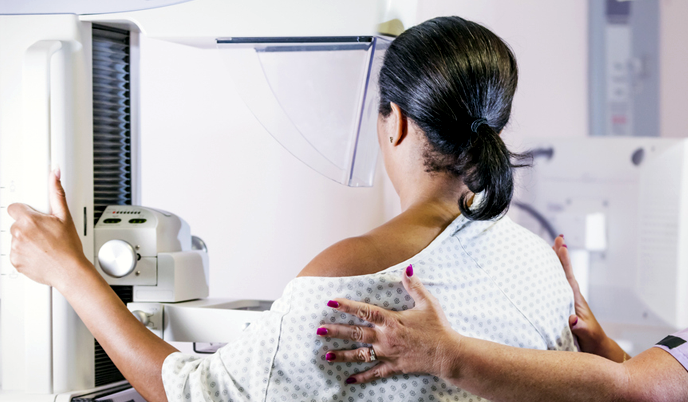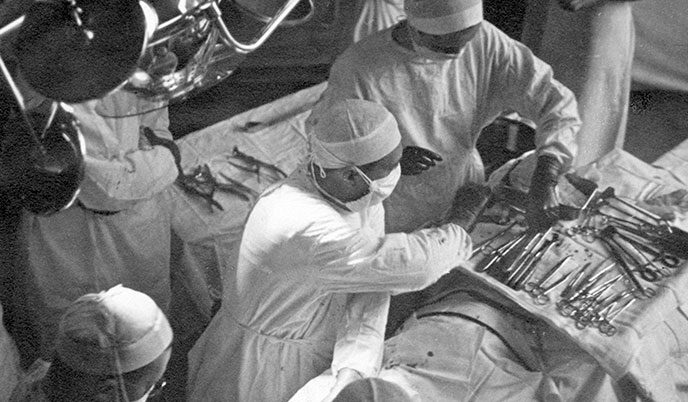
Stronger communities, healthier futures: the Wisconsin Idea at work

Gene analysis helps optimize prostate cancer radiation dose
New results from two randomized clinical trials showed that analyzing a gene expression signature in tumors may help doctors customize radiation treatments for prostate cancer patients, improving outcomes while avoiding unnecessary side effects.

Newborn genomic testing expands with support from Wisconsin medical schools
Through an effort led by Wisconsin’s two medical schools, newborn genomic testing capacity will expand to more hospitals throughout the state, allowing rapid diagnosis of rare genetic conditions and improved medical management for critically ill newborns.

Detecting diabetic eye disease early helps prevent vision loss
Jeri Shultis knew something was wrong. He had driven south from Mauston, Wisconsin to Madison to watch his grandson wrestle at the state tournament, but he was struggling to focus on the mat.

Medical students prepare to meet rising Latino dementia care needs
Researchers in Madison are partnering with a Milwaukee-based Latino community center on a new, culturally competent elective course for students at the University of Wisconsin School of Medicine and Public Health. The course is focused on training the next generation of doctors in dementia care for the Latino community.

AI screening tool helps refer patients for opioid use disorder treatment
An artificial intelligence-driven screening tool developed by a research team at the University of Wisconsin School of Medicine and Public Health successfully identified hospitalized adults at risk for opioid use disorder and recommended referral to inpatient addiction specialists.

A path for safer opioid prescribing
An approach to prescribing opioids that pairs clinician education with patient-centered monitoring and feedback could help primary care doctors minimize prescribing opioid medications to manage patients’ chronic pain, according to a University of Wisconsin–Madison research team.

Maternal blood pressure program expands to help women facing health risks
A UW Health and UnityPoint Health – Meriter program designed to monitor blood pressure during pregnancy and after birth to decrease health complications and hospital readmissions is expanding outside the hospital walls.

Noninvasive ventilation better for patients
Recently published results from a clinical trial showed that for critically ill adults needing tracheal intubation for emergency airway support, the method health care providers choose to use for providing supplemental oxygen before the intubation procedure affects the patient’s risk of hypoxemia, or potentially life-threatening low levels of blood oxygen.

Humid heat impacts dialysis patients
A large, population-based study shows that people receiving regular dialysis to treat kidney disease are vulnerable during heat waves, especially those living in cities in the humid southeastern states, resulting in higher death rates.

New study supports recommendation to begin mammogram screening at 40
Breast cancer screening every two years beginning at age 40 has the potential to reduce the number of women who die of breast cancer while minimizing the harms, according to a large study published today.

UW surgery turns 100
The first day of classes must have felt like a leap of faith. It was 1924 and just three faculty members charged with teaching three medical students made up the new surgery academic department in the University of Wisconsin’s new School of Medicine. At the Wisconsin General Hospital, community surgeons were called in to help teach the students how to set bones, treat sepsis, alleviate inflammation and perform minor surgery.